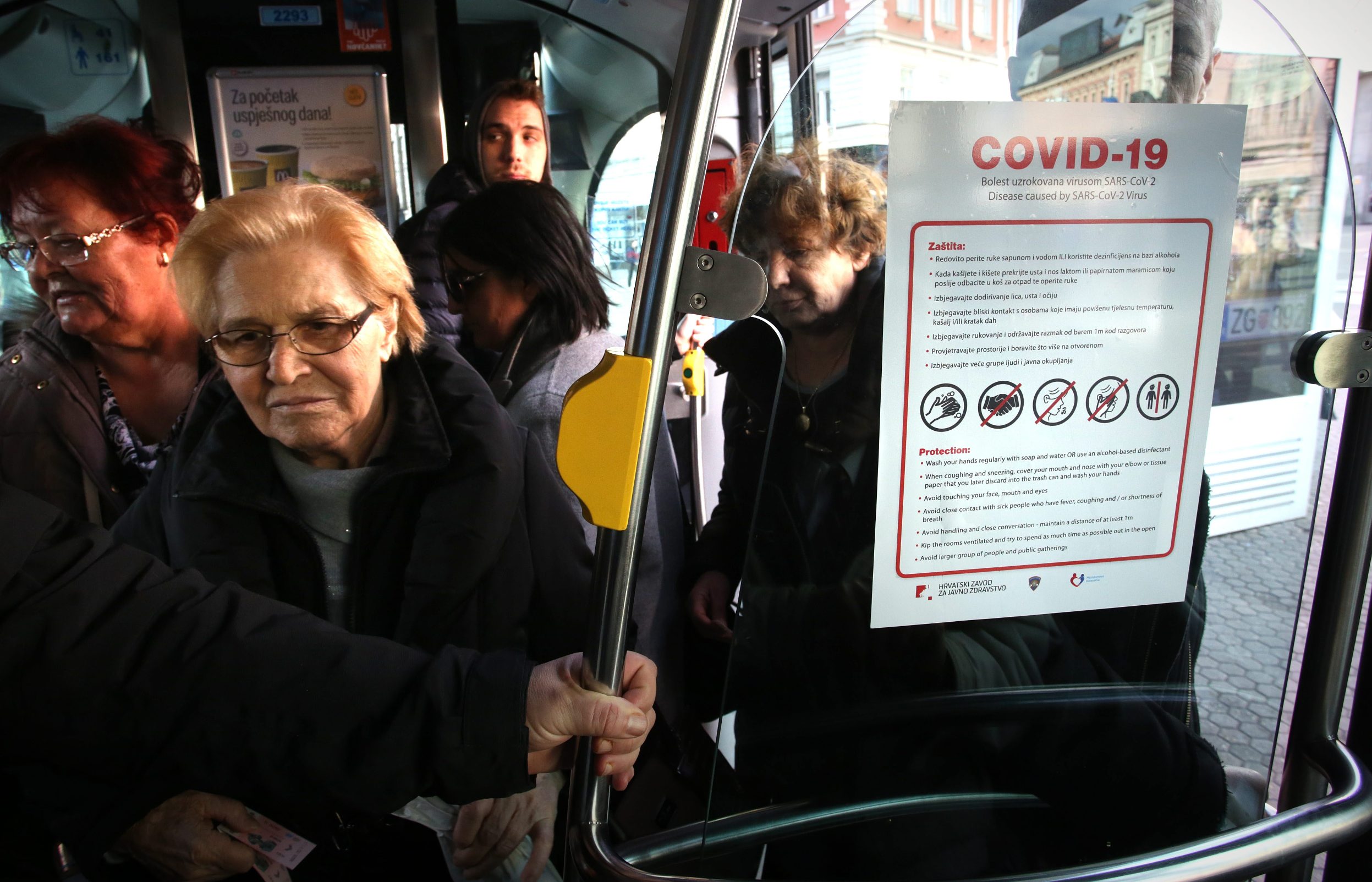
The new measures will be in force until further notice.
The head of the National Civil Protection Team, Davor Bozinovic, said on Monday that foreign citizens entering Croatia from areas hit hard by the coronavirus would be put under mandatory 14-day quarantine, while Croatian citizens arriving from those areas would be issued with a self-quarantine order of the same duration. He also recommended that citizens postpone travel to countries hit by the coronavirus.
The quarantine measure refers to foreign nationals arriving from specific areas in China, Italy, South Korea and Iran.
The self-quarantine measure refers to Croatian nationals arriving from China, South Korea, the Italian regions of Veneto, Piedmont, Emilia Romagna, South Tyrol and Marche, Hong Kong, Japan and Singapore.
Bozinovic recommended that Croatian nationals consider postponing travel to countries and regions hit hard by the coronavirus.
He said that all public gatherings and events likely to attract more than 1,000 people should be postponed. Organisers of those events that will take place are required to ensure the highest hygiene standards, as well as provide disinfectants.
All participants should be given clear instructions to refrain from the usual nonverbal communication, including handshaking, and to avoid close contact.
Bozinovic underscored that people with respiratory diseases and high temperature should not attend such events, and the organiser will have to get approval from the local civil protection authority and public health institute before the start of the event.
Health Minister Vili Beros said that the epidemiological situation in Croatia was calm.
The head of the Croatian Public Health Institute, Krunoslav Capak, said that the epidemiological situation in Europe had worsened.
"In most EU countries the disease is transmitted locally, which means that those are no longer imported cases," he said.
Due to a marked local disease transmission, a tightening of protective measures is being considered in the German federal state of North Rhine-Westphalia, while in Italy certain areas and cities are being locked down and it is impossible to either enter or leave them.
"Italian nationals are still arriving in Croatia, in the last 24 hours 600 Italians entered Croatia. We have decided to introduce additional measures that enable easier and better control. Until now they had the obligation to report to an epidemiologist and could move freely around Croatia, but now we are forced to introduce quarantine," said Capak.
Foreign nationals will be informed of the latest measures, and if they refuse to be quarantined, they will have to return to their country of origin.
"Those who travel on a daily basis to areas hit by the coronavirus will have to stay in self-isolation at home when in Croatia, and when they leave for Italy, they will have to use special protective equipment which their employers will have to provide them with," said Capak.
He added that the measure restricting public gatherings did not refer to schools and faculties as individual lectures are not attended by more than 1,000 students in a single room.
The head of Zagreb's Fran Mihaljevic Hospital for Infectious Diseases, Alemka Markotic, said that there had been no changes in patients diagnosed with coronavirus infection. They will be able to go home when they no longer exhibit any clinical symptoms and when the results of two consecutive tests, taken 48 hours apart, prove negative for the coronavirus, she said.





Za sudjelovanje u komentarima je potrebna prijava, odnosno registracija ako još nemaš korisnički profil....